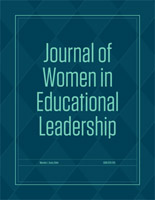Educational Administration, Department of

Journal of Women in Educational Leadership
Date of this Version
7-18-2022
Document Type
Article
Citation
Journal of Women in Educational Leadership, 2022
doi: 10.32873/unl.dc.jwel.207
http://digitalcommons.unl.edu/jwel/
Abstract
This qualitative survey study, framed by social role and role congruity theories, explored the perceptions and experiences of 33 women faculty and academic administrators at doctoral-granting highest research-intensive universities located in the Southwestern region of the U.S. The purpose of the study was to expand on our understanding of how social role and role congruity theories can explain and further our understanding of how women are perceived to be valued as leaders in the higher education space, and how society supports this continued valuation. For purposes of this study, social value is explored through the operational processes of higher education organizations. Findings from this study show that the participants perceived that women’s credibility as leaders continues to be questioned, resulting in less perceived value; the accepted role of women as leaders in higher education continues to be influenced by greater society; society continues to perceive leaders should be men; and organizational practices continue to support systemic barrier to women’s leadership success. By understanding the perceptions and experiences of women regarding their perceptions of value as leaders in higher education, we can begin to address and eliminate systemic barriers to further better support their advancement into leadership roles.


Comments
Copyright © 2022 Jones & Ryan Pal.